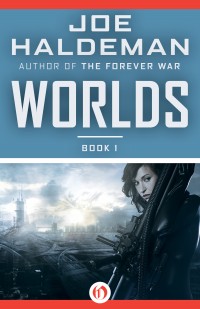The Genome by Sergei Lukyanenko
 Wednesday, February 11, 2015 at 8:04AM
Wednesday, February 11, 2015 at 8:04AM 
First published in Russia in 1999; published in translation by Open Road Media on December 2, 2014
The Genome begins as Alex Romanov is discharged from a hospital on Quicksilver Pit. Alex is a master-pilot. He is also a genetically engineered "spesh" with a modified body and enhanced aptitudes and abilities. One of the modifications prevents him from experiencing love but that is offset by enhanced integrity, loyalty, and kindness. That's one of many interesting touches in this surprising novel.
Stuck on Quicksilver Pit after an accident that nearly killed him, Alex helps out a spesh named Kim O'Hara, a 14-year-old girl who is about to go through metamorphosis. Kim is carrying a stolen crystal, the contents of which are not immediately clear. She appears to be a fighter-spech but she also has a different set of spesh characteristics that are revealed about midway through the novel. Her true engineered nature is surprising and pretty cool.
Alex needs money. With an unbelievable stroke of luck he finds an unbelievably good job as a ship's captain -- unbelievable to Alex, who knows there must be a catch but doesn't know what it is. Sergei Lukyanenko writes some imaginative scenes about Alex bonding with his new ship, which becomes part of Alex (or Alex becomes part of the ship) when he interfaces with it. He also gives an original spin to the process of crew selection. The five crew members Alex selects (most have been genetically engineered for their jobs) give Lukyanenko the opportunity to mix together a number of conflicting personalities.
The universe Lukyanenko imagines is populated by alien races as well as humans who have colonized other worlds. A matched pair of politically important aliens are passengers on Alex's first voyage. This raises themes of racism and xenophobia that will be familiar to science fiction fans, but Lukyanenko handles them well. The morality of cloning is another familiar theme. One of Alex's crew considers herself a sworn enemy of the aliens and another hates clones, again creating the kind of conflicts that add interest to a story. By the novel's midpoint, something eventful has happened that turns The Genome into a whodunit. Solving the mystery (potentially with the help of a genetically engineered detective who calls himself Sherlock Holmes) may be the only way Alex can avert an interstellar war.
Lukyanenko adds a number of original and creative details that contribute to the story's sense of authenticity. I particularly liked the descriptions of piloting a ship. I'm not quite sure that I buy the logic used to expose the bad guy -- it isn't all that Holmesian -- but the story moves so quickly that it's easy to overlook its faults.
To a degree, The Genome endeavors to be an offbeat exploration of love. That aspect of the story is a bit heavy-handed, particularly at the end, but the novel never becomes a trashy sf romance. The Genome is also a philosophical exploration of free will and the morality of genetic programming that prevents the programmed from choosing a different kind of life. While none of those themes reveal fresh thinking, I give Lukyanenko credit for adding some meaningful thought to an entertaining mystery/space opera/action novel.
RECOMMENDED



